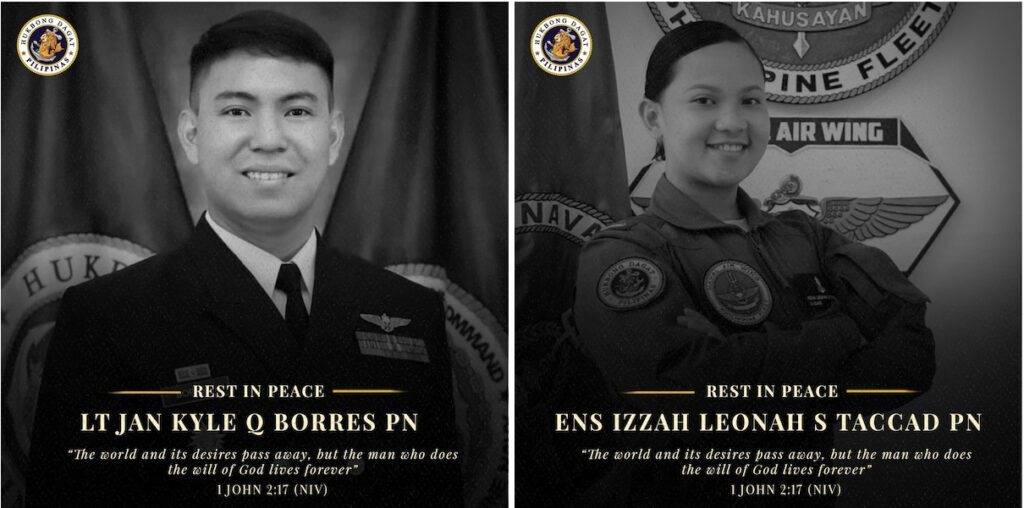
Photos from the Facebook page of the Philippine Navy
MANILA, Philippines — A team to investigate the helicopter crash in Cavite that killed two of its pilots has been formed on Thursday by the Philippine Navy.
This was according to Navy spokesperson, Cmdr. John Percie Alcos on Friday.
Alcos said in an interview over Radyo 630 on Friday that “The investigation team was already created by the commander of the Naval Air Wing yesterday, and earlier today, we rendered arrival honors to [their] remains at the Libingan ng mga Bayani.”
The Navy earlier identified the pilots as Lt. John Kyle Borres, 36, and Ensign Izzah Leonah Taccad, 27.
READ MORE:
Navy helicopter crashes in Cavite, 2 dead – AFP
Helicopter makes emergency landing after tangling with kite string
Japan plane crash: Runway safety concerns in focus
According to Alcos, Borres was one of their “seasoned and most experienced” helicopter pilots. Taccad, on the other hand, had just completed her basic pilot training.
Alcos earlier said the pilots, who took off at Sangley Airport, tried to make an emergency landing but crashed at about 6 a.m.
While Alcos noted that the Navy could not speculate if winds were strong during the incident, he still maintained that “it was a clear day.”
To date, police and military officials have yet to determine the cause of the crash. As for the vehicle’s condition, Alcos said that the Navy was “very strict” in conducting progressive maintenance schedules.
“And every flight we do pre-flight checks to make sure that the particular aircraft is airworthy. The Philippine Navy, whether it be a ship, a land vehicle, or an aircraft — we conduct regular checks and pre-operations checks to ensure the operational readiness of our assets,” Alcos said.
Despite the incident, Alcos said the training of their naval aviators would continue as scheduled.
“We have many ways not to hamper the training of our naval aviators, especially since their services are badly needed in the operational area,” he added, speaking partly in Filipino.

